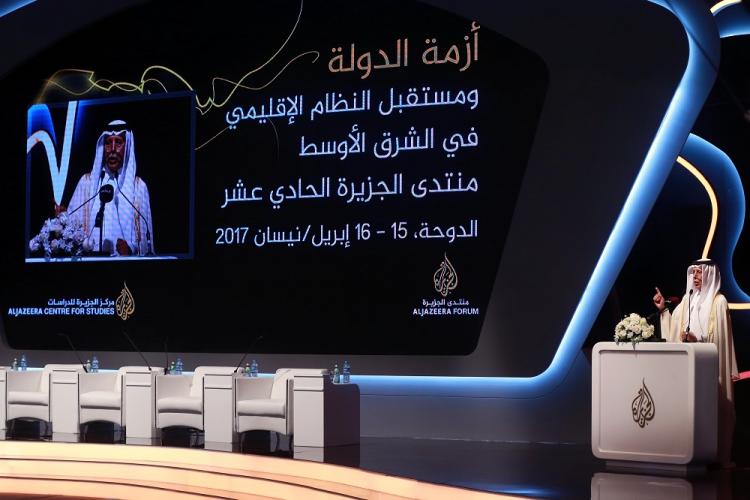
Qatar’s Deputy Prime Minister and Minister of State for Cabinet Affairs HE Ahmed bin Abdullah bin Zaid Al Mahmoud gave the first keynote speech of the 11th Al Jazeera Forum, “State Crisis and the Future of the Middle East in Doha” on Saturday, 15 April 2017.
Addressing the audience in his speech, the Deputy Prime Minister focused on Qatar’s role in the Darfur peace agreement and the lessons the Arab world can learn from it in order to bring peace in the region.
On January 23, the Sudanese government signed a peace agreement with Sudan Liberation Army/Movement (SLA/M) the Second Revolution on the bases of the Doha Document for Peace in Darfur (DDPD).
Al Mahmoud urged the need to give all existing crises and problems a region-specific approach in order to achieve peace among dissenting parties and the steadfastness to implement the agreed clauses.
“While developing the Darfur document for peace, we looked into previous peace agreements and observed that there was a lack of implementation mechanisms from the concerned parties”, he said.
The Deputy Prime Minister underlined the lack of consensus within the Arab world as one of the major roadblocks in the path to achieving peace in the region. He urged leaders of Arab states to act with patience and harmony and cited an example of how dissent from within the region can harm peace process.
“Some [Arab] countries have been truthful but others went to such an extent of dissent that they were launching their own forums within an ongoing forum”, adding “I spoke to the US envoy to Sudan, who had seen our efforts in Doha, and he said he was shocked to hear about another platform for the same purpose”.
Addressing the issue of self-determination, he said at times self-determination can be one of the biggest challenges in the path to peace and cited it as the main reason behind the cessation of South Sudan.
“Different negotiating parties need to understand the harm inflicted by self-determination. There can be ways to address this problem, for instance, we offered referendum with the option of having a central governance or different governorates or states.”
The Deputy Prime Minister also hailed the role of HH the Father Emir Sheikh Hamad bin Khalifa Al Thani in achieving success in the Sudan peace process, saying that the Emir’s backing and authorisation brought peace and dignity for the people of Sudan.
In his concluding notes and observations, he urged mediators to set aside their personal interests and support to the people affected by the crisis.
Furthermore, he urged Arab states to unite in the face of crisis, saying “the more we are able to solve problems ourselves as Arab states, the more we would be able to save ourselves from foreign interventions”.

